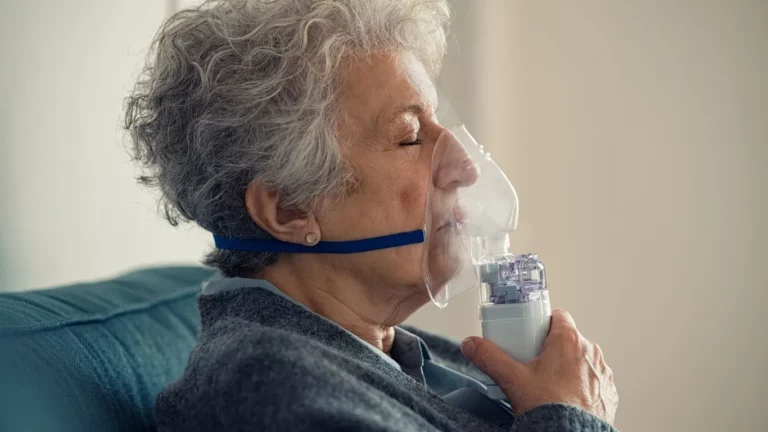Struggling with GERD and Morning Nausea? Simple Fixes That Work
If you’ve ever woken up feeling nauseous, with that weird burning in your chest or throat, you’re definitely not alone. Morning nausea paired with that gnawing reflux can be a real day-ruiner—and let me tell you, working as a Medical Assistant in a Gastroenterology Clinic, I’ve seen firsthand how common and frustrating this combo is. So today, let’s talk about something that’s been coming up a lot with patients lately: GERD and morning nausea. If you’re constantly wondering why mornings hit you hard with an upset stomach or that acidic taste, stick around—we’re going to unpack this together.
What Is GERD and Why Is It Worse in the Morning?

Let’s start with the basics. GERD, or Gastroesophageal Reflux Disease, happens when stomach acid regularly flows back into the esophagus. It’s more than just the occasional heartburn—it’s a chronic issue that can really mess with your mornings. The link between GERD and morning nausea isn’t just coincidence; there are actual physical reasons this happens.
Why Mornings? What’s So Special About Them?
There are a few reasons why GERD symptoms, especially nausea, seem to spike in the early hours:
- Lying down for hours: When we sleep, gravity isn’t helping to keep stomach acid where it belongs.
- Empty stomach: Nothing in your belly to soak up that acid can make reflux feel more intense.
- Late-night meals or snacks: Eating too close to bedtime is a big GERD trigger—trust me, I’ve seen it again and again in patient charts.
In clinic, I can’t count how many times patients say, “I feel fine during the day, but the mornings are brutal.” It’s one of those patterns that jumps out at you when you’ve seen enough cases.
Symptoms You Shouldn’t Ignore

If you’re waking up with nausea, sour taste, sore throat, or even coughing, these could all be signs your GERD is acting up. Here’s what a lot of people describe:
- Burning in the chest (a.k.a. heartburn)
- Stomach queasiness or nausea right after waking up
- Feeling like food is stuck or not going down easily
- Frequent clearing of the throat or morning hoarseness
One patient of ours—a truck driver, actually—kept thinking he had some kind of morning flu. Turns out, he was dealing with severe GERD, made worse by his habit of late-night fast food and sleeping flat on his back. Once he adjusted his routine and started medication, mornings weren’t such a nightmare anymore.
What’s Going on Inside? The Science-y Bit (But I’ll Keep It Simple)

Basically, there’s a muscle at the bottom of your esophagus called the lower esophageal sphincter (LES). Think of it like a bouncer—it’s supposed to keep stomach contents from crashing back up the esophagus. When it weakens or relaxes at the wrong time (like when you’re lying flat), acid sneaks up and causes all that burning and nausea.
Combine that with a belly that’s been empty all night, and boom—you’ve got a perfect storm. Add a spicy late-night taco or two, and it’s almost guaranteed.
Morning Nausea Isn’t Just an Inconvenience
Here’s the thing—consistent nausea in the morning can affect your appetite, your mood, and even your productivity. A lot of people shrug it off or treat it like normal. It’s not. It’s your body waving a red flag. And untreated GERD can lead to more serious issues like esophagitis, strictures, or even Barrett’s esophagus. So, it’s not just about comfort—it’s about long-term health.
From my side of the exam table, it’s clear: catching these signs early can make a big difference. Patients who acknowledge and treat their symptoms—whether through diet changes, medication, or lifestyle tweaks—almost always come back saying mornings are finally bearable again.
How Lifestyle Choices Can Worsen GERD and Morning Nausea

Alright, let’s get into the nitty-gritty. I can’t even count how many times I’ve seen patients unknowingly fueling their own GERD fire with everyday habits. And hey, no judgment—I’ve been there too. Long shifts at the clinic used to leave me scarfing down dinner at 9:30 p.m., crashing into bed 20 minutes later, and waking up the next morning feeling like a dragon slept in my chest. Sound familiar?
So let’s talk about some common culprits that make GERD and morning nausea worse:
- Late-night meals: Your digestive system doesn’t shut off at night, but it definitely slows down. Eating too close to bedtime almost guarantees some acid reflux action.
- Caffeine overload: I love a good coffee, especially those early morning ones before clinic starts, but too much caffeine relaxes the lower esophageal sphincter (that muscle we talked about earlier) and lets acid sneak up.
- Alcohol and smoking: Not trying to preach, but these are reflux triggers big time. They mess with your gut’s natural balance and irritate the esophagus.
- Stress: Yep, GERD’s sneaky like that. Stress doesn’t just affect your mind—it impacts gut motility and acid production too.
What I’ve noticed from patients (and honestly, from my own routine) is that even small changes, like adjusting meal timing or cutting back on spicy takeout, can bring huge relief. And people often come back saying, “Wow, I didn’t know how much better I could feel just by switching a few habits.”
Simple Strategies That Actually Help

Let’s keep it real—nobody wants to overhaul their entire lifestyle overnight. That’s not sustainable. But I always encourage patients to try one or two manageable tweaks at a time. It’s amazing how that can snowball into big improvements. Here’s what tends to work best:
Timing Your Meals Right
Try eating at least 2-3 hours before lying down. This gives your stomach time to digest properly and cuts down on reflux risk. I personally started shifting dinner to around 6:30 p.m. instead of 9, and it made mornings so much smoother.
Elevate Your Head at Night
One of our GI specialists used to recommend this all the time: use a wedge pillow or raise the head of your bed. Gravity helps keep the acid down where it belongs. I’ve had patients come back just to say, “That pillow thing? Total game changer.”
Track Your Triggers
Keep a simple food journal. It doesn’t have to be fancy—just jot down what you eat and when your symptoms flare up. Over time, you’ll start to see patterns. Some people react more to tomatoes, others to peppermint, or even chocolate (I know, the betrayal!).
Try Smaller, More Frequent Meals
A massive dinner right before bed is a reflux disaster waiting to happen. Instead, think small and steady throughout the day. This keeps your stomach from getting too full and cuts down pressure on the esophagus.
When It’s More Than Just Reflux

Here’s something important: not all morning nausea is caused by GERD. Sure, it’s super common, but as a Medical Assistant, I’ve seen plenty of cases where the real issue was something else—like gastroparesis, anxiety, or even certain medications.
That’s why if someone’s symptoms aren’t improving, even with diet and lifestyle changes, it’s worth checking in with a GI specialist. We often run tests like:
- Upper endoscopy – to check for inflammation or damage in the esophagus
- pH monitoring – to measure how often acid is refluxing
- Esophageal manometry – to assess how well the esophagus muscles are working
In clinic, we had a patient who thought she had “just reflux” for months. Turns out, she had delayed stomach emptying, and needed a different treatment path altogether. So yeah, listening to your body and getting things checked early really matters.
Don’t Power Through It—That’s What We’re Here For
One thing I always try to tell patients—and something I learned myself—is that you don’t need to just live with it. GERD and morning nausea can totally be managed. You just need the right info, the right support, and a bit of patience. Whether it’s medication, lifestyle changes, or both, there’s no one-size-fits-all. But there’s always a way forward.
Stick with me—we’ve got more to cover, especially around treatment options and how to create a GERD-friendly morning routine. But if any of what you’ve read so far sounds like your life, you’re definitely not alone. And yes, mornings can get better—I’ve seen it happen every single week in the clinic.
Medical Treatments That Can Help Manage GERD and Morning Nausea

Okay, so we’ve talked about lifestyle tweaks and all the everyday stuff that can help—but let’s be honest, sometimes that’s just not enough. I’ve worked with so many patients in our GI clinic who were doing everything “right” but still woke up every morning feeling sick, bloated, or like something was clawing at their throat. If that’s you, you’re not failing—your body might just need a little more support from modern medicine.
There are several treatment options out there, and the good news is, most of them are effective when used properly. The key is figuring out what works for your specific case of GERD and morning nausea.
Common Medications Prescribed
Here’s what we typically see being prescribed in the clinic:
- Proton Pump Inhibitors (PPIs): These reduce the amount of acid your stomach produces. Examples include omeprazole and esomeprazole. These are often the go-to for chronic GERD.
- H2 Blockers: Think ranitidine or famotidine. They’re not as strong as PPIs but can still be helpful, especially at night.
- Antacids: For quick, on-the-spot relief. They don’t prevent acid but neutralize what’s already there.
- Prokinetics: These help move things along in your digestive tract and can help with nausea that comes from slow stomach emptying.
One of my regular patients—a school teacher who was constantly dealing with morning nausea and voice hoarseness—finally found relief after starting a PPI combined with a few lifestyle changes. The transformation was wild. She actually came in a few weeks later and told me, “I don’t dread mornings anymore.” That’s the kind of win we love to see!
Building a Morning Routine That Won’t Aggravate GERD

If you’ve ever stumbled into the kitchen first thing, grabbed coffee on an empty stomach, and then instantly regretted it—yeah, been there. Creating a GERD-friendly morning doesn’t have to mean flipping your world upside down. It’s more about creating gentle habits that support your digestion rather than fight it.
Start Slow and Hydrated
Drink a glass of room-temperature water as soon as you wake up. It helps hydrate your system and gently wake up your stomach. I usually add a slice of cucumber or lemon—just a personal touch, but it makes it feel more like a ritual than a chore.
Skip the Black Coffee (at Least First Thing)
I know, I know—blasphemy. But coffee on an empty stomach is a reflux trigger for many people. Try eating a light breakfast first. A small bowl of oatmeal, banana with almond butter, or even toast with a bit of avocado can buffer that acid and make a world of difference.
Morning Movement
Even just walking around while getting ready or doing light stretching can help your digestion kick into gear without sending acid up your esophagus. Skip the crunches and downward dogs right away—keep movement gentle.
When to Talk to a Specialist
It’s one thing to feel a little off now and then, but if you’re waking up nauseous most mornings, constantly reaching for antacids, or struggling with sleep due to reflux, it’s time to get help. You don’t have to wait until it’s unbearable. In fact, early treatment can prevent complications like esophageal damage or more invasive procedures later on.
When I help patients fill out their intake forms or go over symptom timelines, I always encourage them to be honest about how often symptoms are happening. Too often we minimize our discomfort, thinking it’s “not bad enough” to bring up. But trust me, your gut health is worth speaking up for.
Quick Recap: What Really Works
Here’s a little cheat sheet for managing GERD and morning nausea based on what’s worked best for patients (and myself):
- Eat dinner at least 2–3 hours before bed.
- Raise the head of your bed or use a wedge pillow.
- Track your triggers with a food journal.
- Consider meds like PPIs or H2 blockers if lifestyle changes aren’t enough.
- Talk to a GI specialist if symptoms persist or worsen.
Don’t feel like you have to navigate this alone. Between your primary care provider, a gastroenterologist, and even your friendly neighborhood Medical Assistant (👋), there’s a whole team ready to help you feel better.
References
- Mayo Clinic
- Cleveland Clinic
- National Institute of Diabetes and Digestive and Kidney Diseases (NIDDK)
- UpToDate
Disclaimer
This article is for informational purposes only and is based on professional experiences in a gastroenterology clinic setting. It does not substitute for professional medical advice, diagnosis, or treatment. Always consult with your healthcare provider before making any changes to your medical care.

Camellia Wulansari is a dedicated Medical Assistant at a local clinic and a passionate health writer at Healthusias.com. With years of hands-on experience in patient care and a deep interest in preventive medicine, she bridges the gap between clinical knowledge and accessible health information. Camellia specializes in writing about digestive health, chronic conditions like GERD and hypertension, respiratory issues, and autoimmune diseases, aiming to empower readers with practical, easy-to-understand insights. When she’s not assisting patients or writing, you’ll find her enjoying quiet mornings with coffee and a medical journal in hand—or jamming to her favorite metal band, Lamb of God.







